‘I woke up and my foot was gone’
MONIQUE fell from a fifth floor balcony at a uni party. A week later she woke up from a coma missing a leg. This is her story.
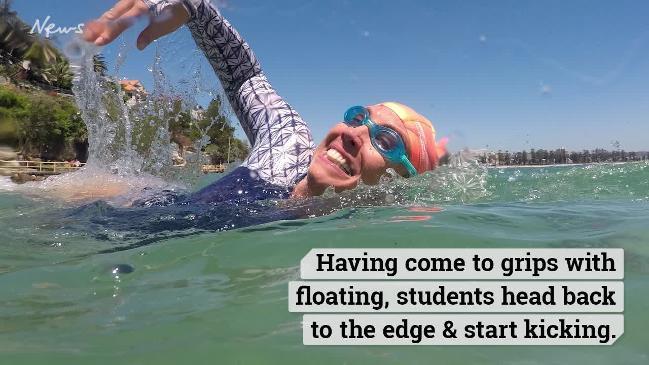
FOUR years ago I was just like any other uni student. But my life changed the night I fell from a fifth floor balcony and landed on a glass roof.
I have no recollection of the night. I was at a party with other students, and I believe my drink was spiked, which is why I fell.
I know I’m lucky to be alive. After crashing onto that roof I was in a coma for a week.
I woke up in hospital with no idea where I was or what had happened.
The doctors filled me in. I no longer had a right foot.
The news took a while to sink in. I actually don’t think I understood when I first woke up.
It wasn’t until the next morning when they came and saw me and walked away that I heard the words ‘foot’ and ‘amputation’. Until then I had thought my foot had just been bandaged into a point — because I could still feel it.
I asked the nurse if my foot had been amputated and her face said it all. My mum then entered the Intensive Care Unit (ICU) and she grabbed my hand and said my foot saved my spine and my jaw saved my brain.
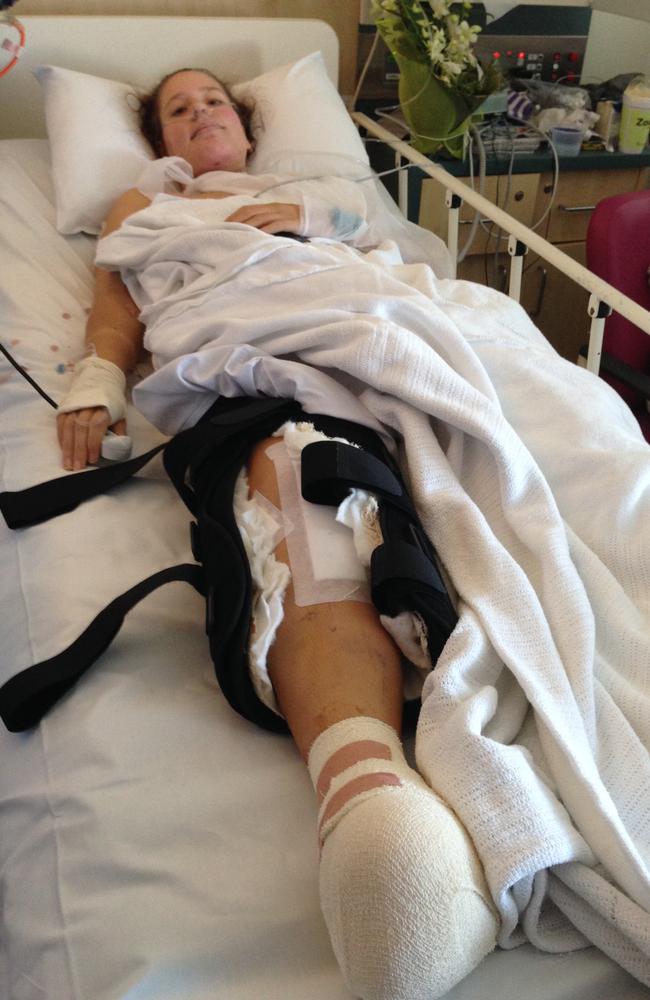
Somehow, despite the height of the fall, I had no spinal or brain damage.
On top of losing my right foot, I suffered a broken jaw, a dangerous laceration to my neck from the glass, broken collar bone and tibia plateau fracture. I had a left knee reconstruction, trice tendon repair and three broken ribs.
When I woke up from my coma I had a lot to come to terms with.
One of the options given to me was to have my right leg further amputated than it already was.
The reason for this would be to improve my chance of regaining mobility, functionality and independence.
MORE: Amputees taught new movements by Paralympians
It was a pretty daunting decision, but one made easier when I actually had the chance to meet someone who had gone through the same trauma I was experiencing.
Mike Rolls was volunteering with the organisation Limbs 4 Life, and he gave me a realistic understanding of what my life would be like with a prostheses.
He had once faced a similar decision regarding an elective amputation, and talking to him helped my family and I decide that I would undergo further surgery to remove much of the lower part of my right leg.
I was in a lot of pain while I was in hospital. I spent six weeks there in total, and had eight operations.

One week I had three operations in three days. I was a wreck after those.
The pain was intense. I wouldn’t let any nurse or healthcare members touch me for a week.
But a physio came to see me and told me I should start trying to stand. It sparked a goal — I wanted to stand to hug my brother goodbye. He was flying back to London, a flight he’d postponed when I’d fallen.
Achieving this goal was one of my proudest moments in hospital, and I started to set more goals after that.
I got my first prosthesis about a month after the final amputation. By this stage I was in a rehabilitation ward at Royal Park Hospital. They had a hydrotherapy pool, and it sparked something in me.
When I was a kid I was an enthusiastic swimmer. I’d swum for the Tuggeranong Vikings Swim Club in Canberra, but I’d give up swimming when I finished school in 2012.
When I’d met Mike in hospital he’d spoken to me about prosthetic fins — people who scuba dive use them. And I started realising my future could include swimming.
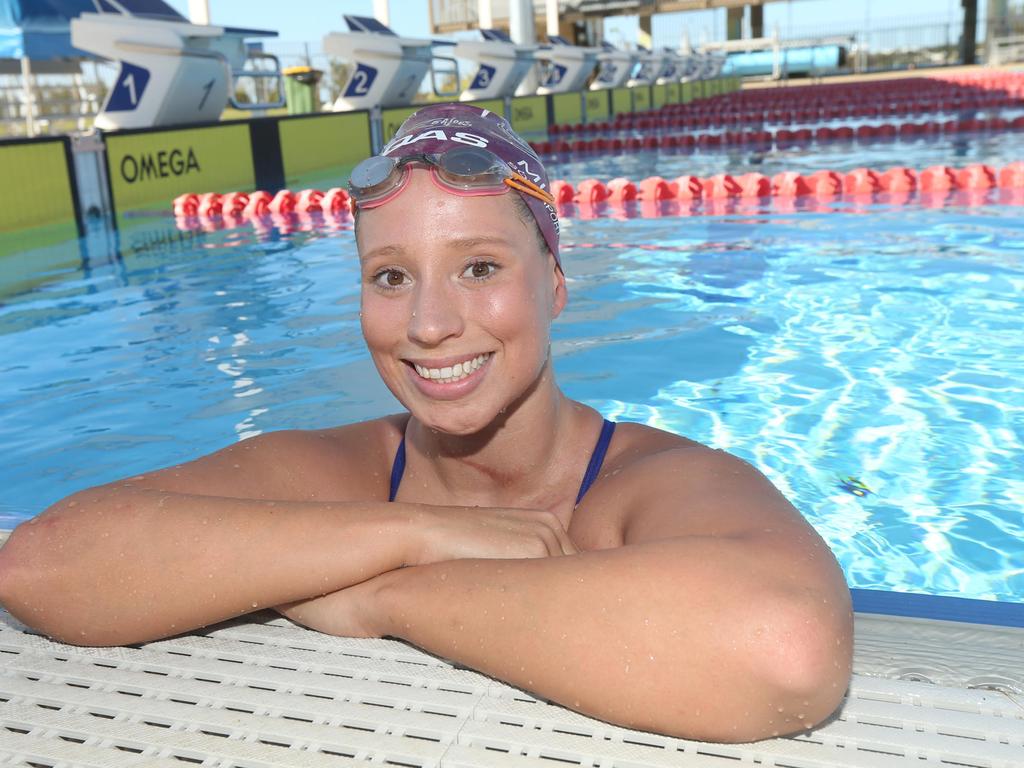
Getting into the water was so liberating. For the first time, I could move more than I had in weeks and from that day I was the first person in the water every morning, and the last one out each afternoon. I remembered how much I loved being in the water (I should have listened to my friends and family who had told me to keep swimming in the first place!).
Over time I gradually built up my swimming ability as an amputee. For a long time it was the one activity that would always get me out of bed or out of the house.
I joined a club in Melbourne, and in the months before I could return to university I started training. I enjoyed the challenge of pushing my limits as an amputee and seeing just how much I could accomplish.
Amputees often get ‘phantom’ pain in the limb they’ve lost. It’s hard to explain, but it’s incredibly painful and it kept me awake at night.
Swimming helped me reduce my pain. I got fit and lost weight, and was introduced into the world of para-swimming.
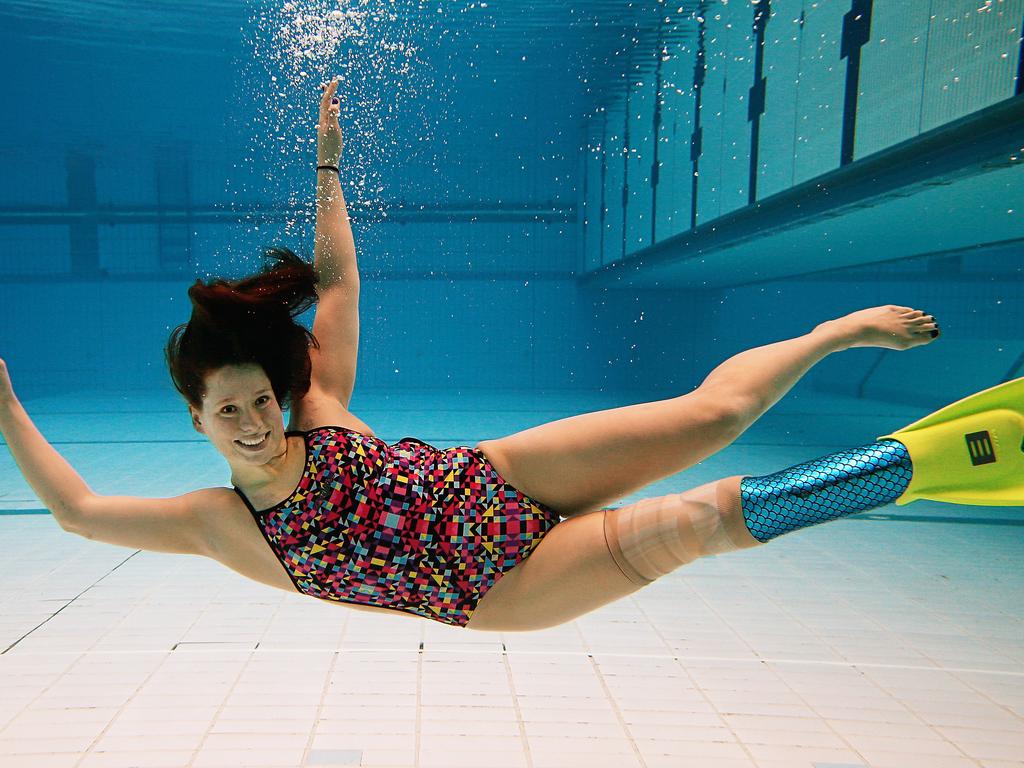
Just one year later, I was announced as a member of the Australian Dolphins Swim Team — a dream I’ve had since I was a kid. It’s a different way of achieving my dream but it’s a second chance, and it’s one that I’m grateful for.
But training without my leg was different than when I was an able bodied swimmer. I had to train harder, longer and smarter than before.
Para sport is in no way easier than being an able bodied athlete. At an elite level, I still had to be determined and disciplined every day. I have the added challenge of having to be inventive. Learning how to push off the wall with only one leg was just one challenge.
In terms of physical support, I still have regular physiotherapy and massage sessions which help with my training load.
In 2016 I competed in the Rio Paralympics and won a silver medal 400m freestyle S10 category.
Being a part of the Australian Paralympic Team has allowed me to have so many experiences I would never have had. I have met so many inspiring people, and formed lasting friendships. It fills me with so much pride.
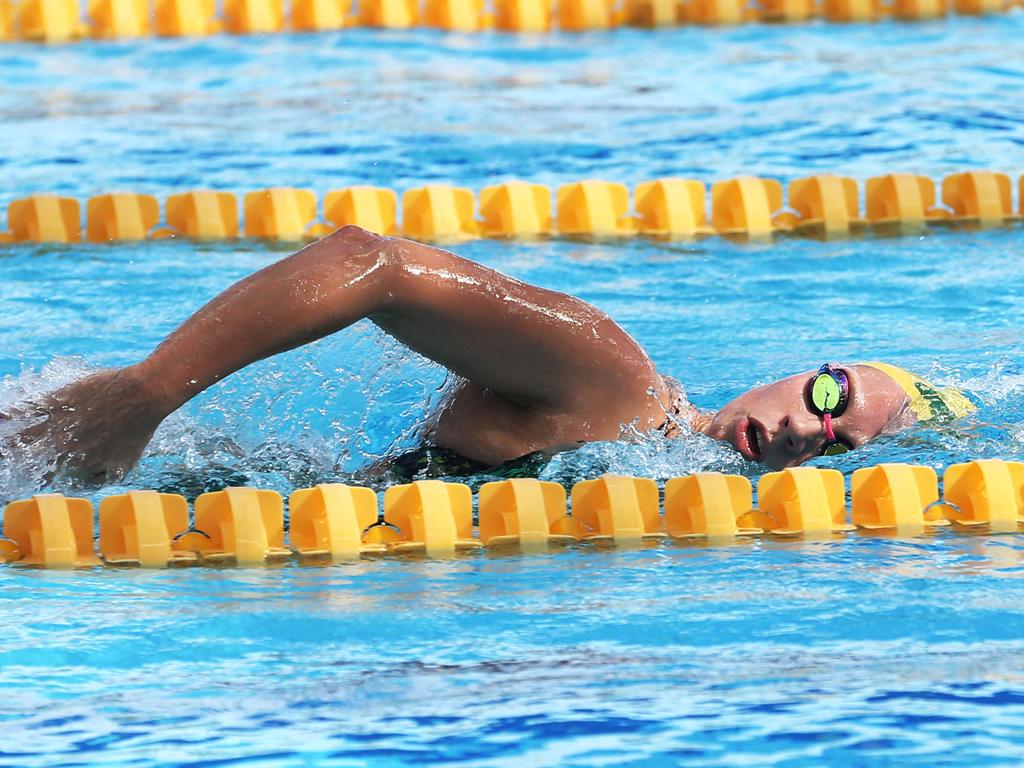
While I’m still the same person I was before the accident, I’ve grown stronger. I know it sounds strange, but having a prosthesis has helped me become more comfortable in my body.
While I’m in a good place now, I know learning to be an amputee isn’t easy. It’s OK to have bad days. I have a brilliant support crew — my family — who have been there for me through my whole journey.
I wouldn’t have it any other way.
- Monique Murphy is a Paralympic silver medallist and social work student. Follow her on Twitter @MonMurphy287
- Limbs 4 Life is an organisation supporting amputees and their families. For more information visit their website . National Amuptee Awareness week runs from the 4th — 11th October.



